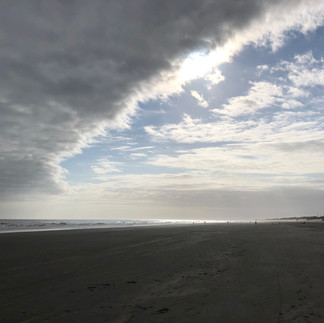Hiding
- Em of One

- Feb 27, 2022
- 2 min read
As I mentioned in an earlier post, a large reason I stopped writing was because of fear. But also there was shame, guilt and the sense that I needed to apologize for my disability. Saying that I am disabled takes up space in a different way than I'm used to.
Ever since I can remember, I've been concerned about fitting in, blending in and conforming to rules and norms. I'm the person who looks wistfully at the woman who unapologetically creates her own style--whether it's a multicolored pixie cut or bold pair of glasses. Women who are unapologetically themselves--embracing their disability, their size, their sexuality, etc--in a world that asks them to be something different are superheroes to me.
Since my illness is mostly invisible to others (except when wearing the hard collar like I do now or using the wheelchair), I found it easier to just try to fit into a healthy world. Or so I *thought* I did.
I thought it was easier to just keep trying to do things the way I always had--cute clothes, make-up, helping with things, not asking for help, not using a wheelchair or seat cane even if it would make my life easier. In other words, presenting like a non-disabled person when out in the world. It seemed simpler. But after each foray into the non-disabled world, I'm left exhausted.
By acting 'fine' and 'looking fine', I avoided a lot of discomfort on the part of others. Because when you're disabled you spend a lot of energy trying to make others feel comfortable with *their* discomfort.
Inside myself, though, I've held tight to guilt and shame. To the need to apologize
for being disabled and to the fear of what it might mean if I was honest about my disability. I thought it was easier to hide my disability. Because as women, the less space we take up the better, right?
In an ableist world, hiding (and being able to hide) a disability can be useful, even part of survival. Ultimately, though, it's inauthentic. It's exhausting. And it does no one any favors. (The flip side of this is, of course, the exhausting side of being disabled in an ableist world, but I'll explore that in another post.)
This blog and my Instagram have been my first foray into saying: I am disabled.
And I will be so without shame, without guilt and without apology. I am thankful to all of the disability advocates who came before me, who guided me, and who's voices told me to finally be authentic.









Comments